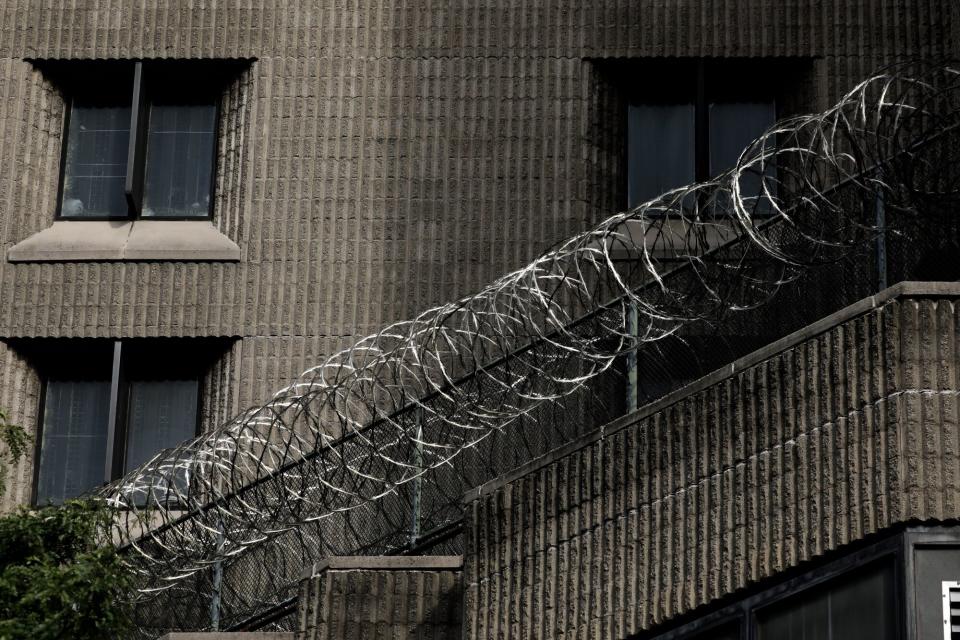Prison Phone Rates Set for Drastic Reduction Under New FCC Rules

(Bloomberg) -- The Federal Communications Commission has proposed new rules to reduce phone and video call rates for incarcerated people, a move that could dramatically reshape the business of prison telecom providers such as ViaPath Technologies and Aventiv Technologies.
Most Read from Bloomberg
Democrats Question Replacing Biden: Here’s How It Could Work
Biden Struggles as He Spars With Trump on Economy: Debate Takeaways
SpaceX Tender Offer Said to Value Company at Record $210 Billion
The proposed rules call for a drastic reduction in the cost of audio calls, impose brand-new caps on video services and prohibit providers from making commission payments to the jails and prisons in which they operate, according to a document posted on the agency’s website on Thursday.
The FCC action came as ViaPath was preparing to wrap up a crucial $1.4 billion debt sale to refinance loans that start maturing in 2025 and as Aventiv is exploring options to sell itself, casting a shadow over both companies’ plans.
The prospect of stricter regulation has been a major overhang for the industry. Bipartisan legislation that President Joe Biden signed into law in early 2023 gave the FCC broader authority to regulate the cost of audio and video communication services that are offered to inmates.
The FCC is proposing new caps on audio calls, such as 6 cents per minute for large jails, down from a roughly 16 cent cap currently. The new interim cap for video would be 11 cents per minute for a similar facility. The FCC will vote on the proposed rules on July 18.
The caps could become a financial hit for companies that specialize in providing these services as well as for the jails and prisons that in some cases earn a large share of the revenue in the form of commissions. Both ViaPath and Aventiv, which were saddled with debt as part of leveraged buyouts led by private equity firms, have already been dealing with higher borrowing costs following the increase in interest rates over the past two years.
ViaPath, which was previously known as Global Tel*Link or GTL, is owned by American Securities, while Aventiv, which operates Securus Technologies, is owned by Platinum Equity.
Representatives for ViaPath, American Securities and Platinum Equity did not immediately respond to requests for comment. Aventiv and Texas Capital Bank, which is leading the refinancing deal for ViaPath, declined to comment.
“The FCC is on the verge of taking historic action to finally implement my Martha Wright-Reed Just and Reasonable Communications Act so we can start lowering prison phone rates and end the predatory status quo that enabled prison telecom providers to gouge the families of incarcerated people,” Senator Tammy Duckworth said in a news release.
Companies in the prison services industry have faced higher borrowing costs and narrowing options to refinance debt, in part because of increased regulatory risk, but also because several investors and major banks have been distancing themselves from the sector over environmental, social and governance concerns in recent years.
Debt Woes
ViaPath has been nearing the end of a refinancing process to repay upcoming maturities. The company was last in discussions with investors to obtain a $1.375 billion loan with pricing of 7.5 percentage points over the Secured Overnight Financing Rate and an original issue discount of 98 cents on the dollar, according to people with knowledge of the matter who asked not to be named discussing a private transaction.
The loan was $75 million smaller than the amount originally targeted, a difference the company planned to make up by drawing on its revolver, the people said. The transaction, which would refinance existing debt maturing in 2025 and 2026, has been expected to close on July 2, they added.
Aventiv has also been working for months to address a heavy debt load and reached a deal with lenders that calls for the company to sell itself sometime in the next year, Bloomberg reported in March.
Those negotiations gave Aventiv an eight-month extension on more than $1 billion of debt that was previously due in November. If the sale process doesn’t go as planned, Aventiv may pivot to restructuring its debt through a bankruptcy filing or otherwise rework its obligations outside of court.
Most Read from Bloomberg Businessweek
The FBI’s Star Cooperator May Have Been Running New Scams All Along
RTO Mandates Are Killing the Euphoric Work-Life Balance Some Moms Found
Japan’s Tiny Kei-Trucks Have a Cult Following in the US, and Some States Are Pushing Back
How Glossier Turned a Viral Moment for ‘You’ Perfume Into a Lasting Business
©2024 Bloomberg L.P.

 Yahoo Finance
Yahoo Finance 